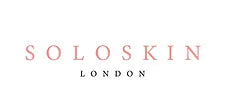Umm...I don't want to lie but sometimes when people tell me they want a chemical-free product, I start wondering what exactly do you mean by that?
A lot of our customers care more about how their skin feels than the products we use. So even if something doesn't contain any chemicals at all on its label or in its ingredients list--the customer will still buy it because they know using an organic beauty routine makes them feel cleaner and healthier! And while some seekers may not realize this just yet (or ever), there are plenty out there who appreciate honest advice from me.
Firstly, EVERYTHING is a chemical. It's unfortunate that the oxygen we breathe in and natural ingredients also have chemicals within them!
There are so many different things that natural can be. Generally, it means these ingredients come from nature and not something man-made like a factory or laboratory which gives the term more credibility in most people's eyes nowadays!
The debate over parabens being cancer-causing or hormonal is a long-standing one, with many people claiming they should be avoided for these reasons. Mixed messages have always scared me and that's why I looked out for these ingredients in products - not just because of myself but also you as customers! Sometimes it can all just seem so confusing...
Are All chemicals bad?
In the past I've been convinced that synthetic ingredients are bad. But after taking my certificate in natural skincare courses, it was clear to see some weren't all bad and could actually have their own place!
For example, a synthetic preservative can extend the shelf life and stability of your product. This is useful because it reduces yeast mould or bacteria growth so you don’t have to worry about those pesky infestations when using that clay mask! But I considered this as well since safety always remains one priority for me- my customers come first no matter what they need from their beauty regime in order keep them safe while still feeling beautiful.
It's important to know what we're putting on our skin. Parabens have been found in breast cancer tissues, so it can be really confusing on what the right answer is.
For me, my personal opinion is to try to stay as green as possible!
Is natural skincare better?
Lemon juice is often said to have a brightening effect on skin, but it's not all sunshine and rainbows. This one can be tricky because you automatically think that natural ingredients are better than synthetic ones like those found in commercial products for beauty fixes at home or by the cupboard-right? Let’s take DIY skincare as an example: You may find people telling us lemon peel (or even just fresh squeezed) contains vitamin C which helps our complexions look brighter; however they typically don't mention any side effects such as also making our faces red after a DIY.
Should you carry on with DIY's if you have sensitive skin?
A big no no!
Did you know that Lemon juice actually can cause your skin more harm, photo-mutagen. In other words when UV light hits our skin, it reacts and damages our skin cells leaving permanent damage and can even burn the skin.
This is why it is important not to follow DIY skincare hacks from a creator that has no research or any kind of certification as these type of ingredients have dermal limits. For example, our Night Face Oil contains orange essential oils. However, the essential oil is calculated according to the IFRA standards ensuring that the right amount is used to avoid skin sensitivity.
So can natural ingredients be bad? Yes! If used incorrectly they can have adverse affects to your skin too!
Let's talk about what we have learnt in this blog
- We know that EVERYTHING is a chemical
- We know that not all Synthetic ingredients are bad
- Natural or Synthetic products can irritate the skin
- Don't follow DIY skincare!

